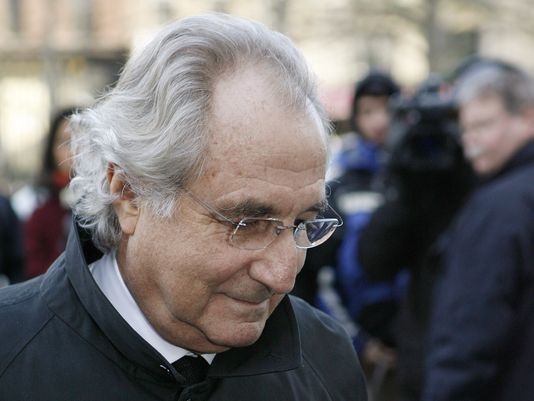When they were rich: Madoffs' '04 tax return
Prosecutors revealed Bernard Madoff's 2004 tax return at the trial of five of his former associates Tuesday, providing an unusual — if unreliable — peek into the disgraced money manager's finances.
Madoff is serving a 150-year prison term for masterminding a $17.3 billion scam that victimized thousands of charities, celebrities, ordinary investors and financial funds.
Now New York prosecutors have turned their attention to his employees, and the 2004 tax return filed by Madoff and his wife, Ruth, was entered into evidence.
Aide's testimony: Defense lawyers challenge former finance chief[1]
What the return reveals:
• Madoff claimed $22.2 million in adjusted gross income, and paid about $2.8 million in taxes — a 12.6% tax rate. "That's really low by anyone's standards," says Adam Fayne, partner at Arnstein & Lehr, a Chicago law firm.
On the other hand, the wealthy can often find ways to reduce their taxes, says Martin Press, a tax attorney in Fort Lauderdale. "They worked it so he paid 12% of his gross, which is in line with a legitimate guy like Mitt Romney," Press says.
• He had $9 million in deductions. "This included over $4 million to charities — which we all know was actually other people's money he was using to make these donations and drive down his tax bill," says Fayne.
Big charitable contributions aren't unusual for scammers, Press says. "If he actually gave the money to charity, it is a common theme of Ponzi scheme people to make large charitable contributions to show people how wealthy they are." Those acts of seeming largess make the scammer seem more trustworthy to his victims.
• Much of his fortune was kept at accounts at Lehman Bros. and Fidelity Investments. "You would think that he would have most of his income from his own fund, but that was not the case," says Fayne.
Madoff also claimed $3 million in tax-exempt interest from municipal bonds, typically the realm of stodgy retirees, not high-flying Wall Street traders, as Madoff claimed to be. "If he was making so much money in the investment business, why would he be investing, allegedly, so much money in tax-exempt bonds, which gave him $3 million in interest? It would be out of character," Press says.
The problem with analyzing the swindler's tax return, of course, is that it's hard to know how much is fact and how much is fiction, especially since his accountant who prepared and signed the tax return, David Friehling, pleaded guilty to nine criminal charges in 2009 and was labeled as "one of the key enablers" of Madoff's scheme.
Contributing: Doug Carroll










